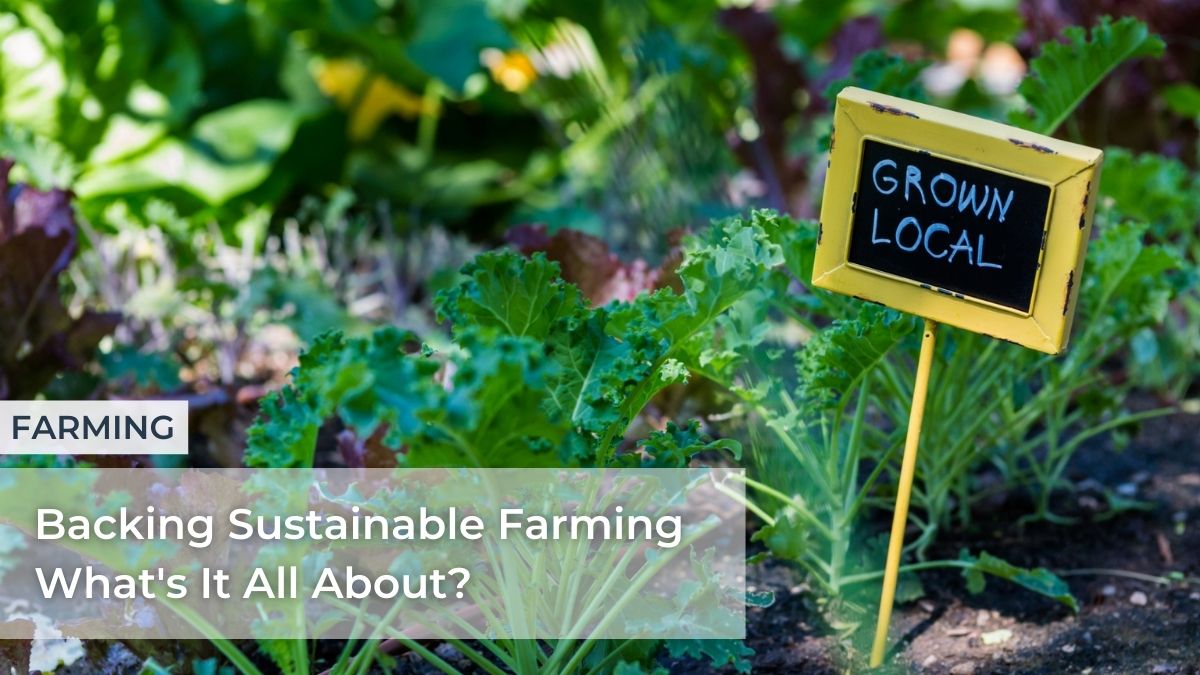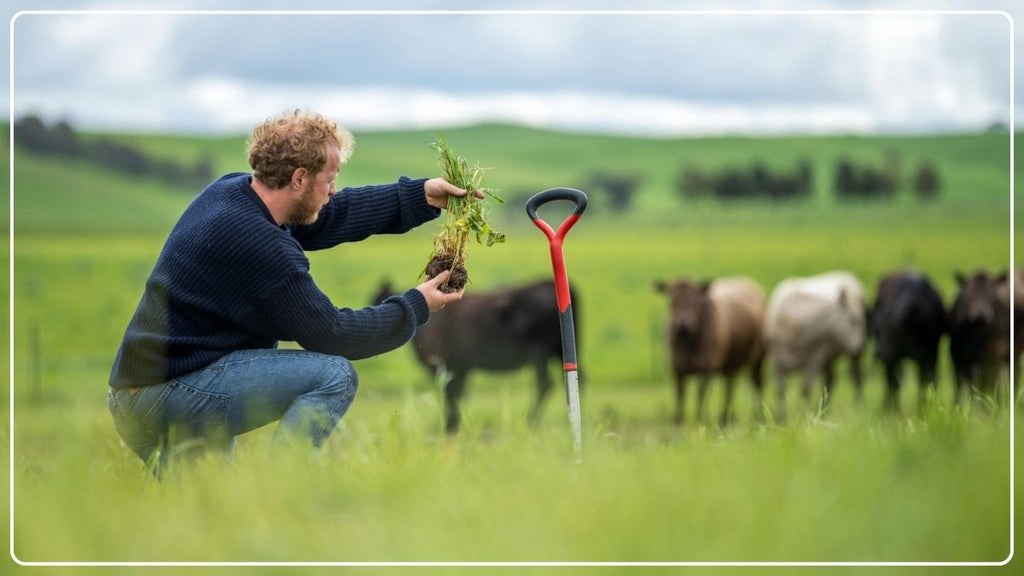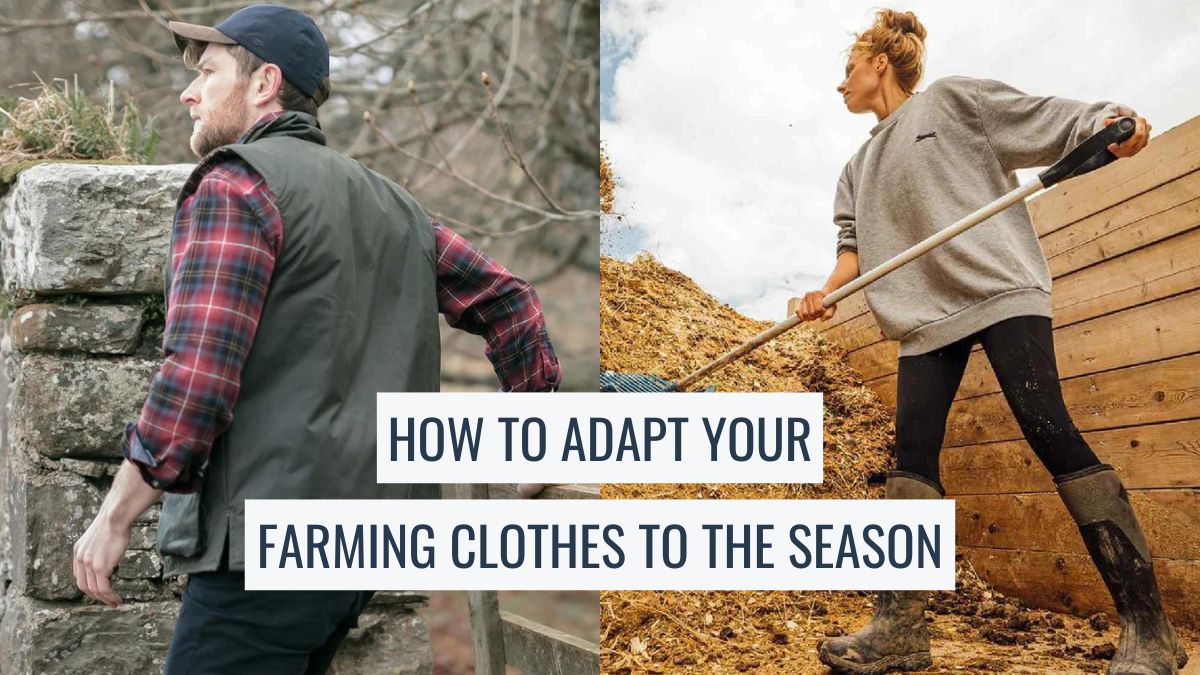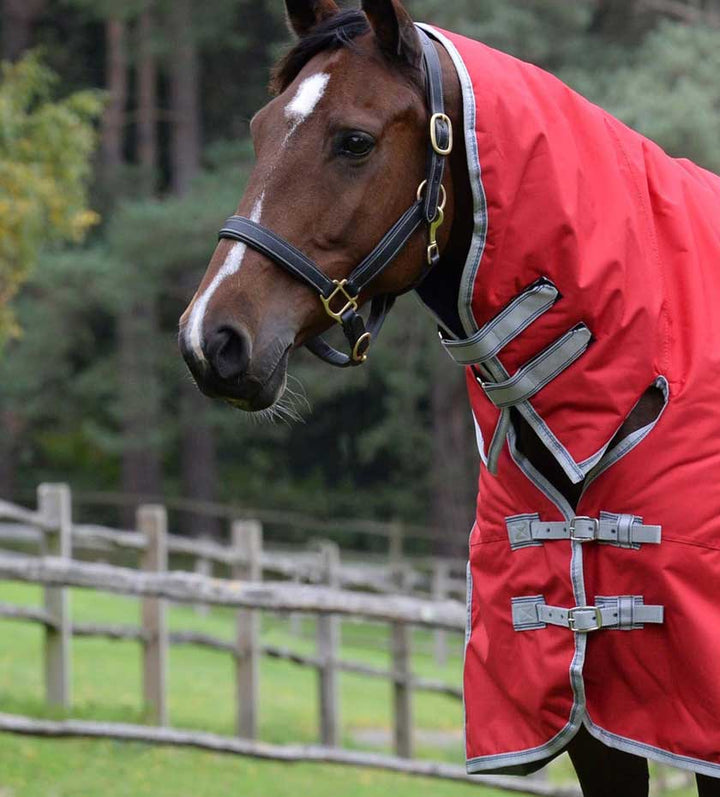
How to Support Sustainable Agriculture & British Farmers
In our fast-paced, 'instant everything' modern world, it's easy to overlook the gentle rhythm of nature and the countryside amidst all the noise of industrial buzz and consumerism.
But we are all in this together - town and country. We all depend on the earth and the crops to survive. And let's not forget - none of this would be possible without our hardworking farmers who bring these essentials to our tables.
In previous blog posts, we talked a lot about supporting our British farmers - something that's close to our hearts - and we've also shared the story of what's happening with the Welsh Government's Sustainable Farming Scheme. Now, we want to dig a little deeper into sustainable farming and explore what it's all about.
Right now, the future of farming stands at a crossroads where tradition brushes up against fresh ways of thinking. In principle, sustainable farming sounds easy - make sure that the impact of agriculture is good for the planet and, in turn, good for us.
But honestly, is it all as straightforward as it seems?
Understanding Sustainable Farming
First, let's understand what the agricultural sustainability is.
Sustainable farming is all about farming methods that are good for the planet, fair for people, and can make a profit too. Cutting down on the carbon footprint of agricultural systems, ensuring workers are treated fairly, and getting the community involved - this is what long-term sustainability looks like.
Essentially, it’s farming with the future in mind—making sure that the land stays fertile and even gets better over time.
For example:
- Crop rotation to keep the soil rich
- Using natural methods to deal with pests so the crops stay healthy
- Recycling animal waste into natural fertilisers
- Planting more trees on the land
So far, so good - right?
Principles of Sustainable Farming
- Economic Viability: Farms need to make a living to remain operational and consumers have a demand for food. The policies and practices put in place must support affordability on both sides.
- Social Responsibility: Our agriculture industry has been the backbone of our communities for generations. Paying respect to age-old traditions, standing by our communities, and looking out for the rights of those who work the land is crucial.
- Environmental Sustainability: The land, air, and water are not merely means to an end but vital resources deserving of protection. Practices need to minimise pollution, prevent soil erosion, and make the most of the resources we have.
Again, it looks like we're still on the sunny side of things. But aiming for a greener planet comes with its share of hurdles to jump over.

Challenges and Benefits of Sustainable Farming
Despite its noble pursuit, sustainable farming faces several practical and economic obstacles that often seem at odds with the bottom line.
There’s a big challenge in the gap between what sustainable farming policies say and what actually happens on the ground. These policies are made with the best intentions, but turning them into real actions in the field is often more complicated than it sounds.
But let's look at a quick summary of the ups and downs of these policies.
Positives
Sustainable farming has multiple advantages, including:
- Reduced environmental impact: Helps conserve natural resources such as healthy soil and water, preventing pollution and degradation.
- Improved crop yields: By rotating crops and using organic methods to replenish the soil, sustainable farms can often produce higher yields than traditional farms in the long run.
- Healthier food: With fewer chemicals used in the food production process, sustainable agricultural practices can result in healthier and more nutritious food for consumers.
Challenges
However, some challenges come with implementing sustainable farming practices, including:
- High initial costs: Starting new habits often means you'll need to open your wallet a bit wider. This might cover the tools, technology, and any education you'll need. For farmers already operating on tight margins, this is not good news.
- Transition period: Switching to sustainable farming methods can take time and may result in a temporary decrease in yields or profits while the soil adjusts.
- Environmental: Shifting towards farming that's kinder to our planet is a big goal, but it’s not always smooth sailing. Sometimes, the move can ruffle some feathers in local ecosystems or mess with soil health and the variety of life around us if we don’t handle it carefully.
It seems like there's one key point to raise here: sustainable farming needs to be all about balancing respect for the past with preparations for the future.
While it's exciting to dive into the latest farming tech and methods, we can't afford to toss aside the good old ways that have stood the test of time. The people who have worked our land, often families for generations, know what they are talking about.
Tackling it from both sides is the way to go. Hearing from our farmers about their struggles opens up a conversation on how to lay down strong roots for the future. This includes building a reliable supply chain that works well for everyone involved.
A Farmer's Vision
Knowledge, passion, and experience - there are voices in our farming communities who are using their platforms to share the truth about the current issues being faced in farms across our country.
One such voice is that of Gareth Wyn Jones, a Welsh farmer who has an impressive social media following on YouTube and TikTok. People love his educational content and insights into the life of a farmer, and he isn't afraid to stand tall on the issues that really matter.
Gareth wants to connect folks back to where their food comes from and get them to appreciate nature's role in food production. He's big on the idea of food that's sustainable, healthy, and won't break the bank, but also respects our planet.
Why not jump into the conversation about sustainable farming? Gareth's social media platforms are a great place to begin. It's packed with informative videos, and there’s always room for one more voice—yours!
Check out the YouTube video below too, where Gareth shares his thoughts on the disconnect between town and country with the Fieldsports Channel.
The Role of Consumers in Backing Sustainable Farming
We often take it for granted that the supermarket shelves will always be stocked, and, if we want steak for dinner, we can have steak for dinner.
But, as we've seen over the past few years, there are factors which come into play that can affect this. Running low on food isn't just a possibility; it's happening. And if we're not careful, ignoring our farmers and their needs could make the situation even worse.
So, here's how you can chip in:
- Support local farmer’s markets: These are the perfect places for the sustainable agriculture movement, where farmers directly connect with their consumers. We've got a great list of places to visit here.
- Choose sustainable food: Look for labels like "organic", "fair trade" or "sustainably grown" on your food packaging.
- Eat with the seasons: Eating according to the season reduces the strain on farms to produce out-of-season goods and reduces food waste.
- Educate yourself and others: Take the time to learn about sustainable farming practices and share your knowledge with others. This can be as simple as talking to your friends and family about the importance of supporting local farmers or sharing articles (like this one!) on social media.
Supporting the wonderful range of fruits, veggies, meats, and dairy that our British farms produce can truly create positive change. Farmers across the country get the support and financial input that they need, whilst we are also doing our bit to help the environment. It's a win-win situation, and the best part? It's super simple to do.
Summary
Good policymaking starts with really understanding what goes on at farms every single day.
Those signing on the dotted line should be listening to farmers' voices, like Gareth's, who are sharing the stark realities of what sustainable practices mean for them. Turning those plans on paper into real, reasonable actions can make a world of difference for both our hardworking farmers and the health of our planet.
So, let's continue to educate ourselves and others, get involved in supporting local farms, and advocate for policies that promote sustainability in our planet and our farming systems.
About the Author
Robert Coates is no stranger to the world of farming clothes! Residing on his family farm in the heart of the Cheshire countryside, he understands the importance of durable, practical garments for those who work the land. Whether he's discussing the latest innovations in waterproofing or sharing tips for selecting the best wellies, Robert's expertise is built upon his daily interactions with the challenges and rewards of agricultural life.









